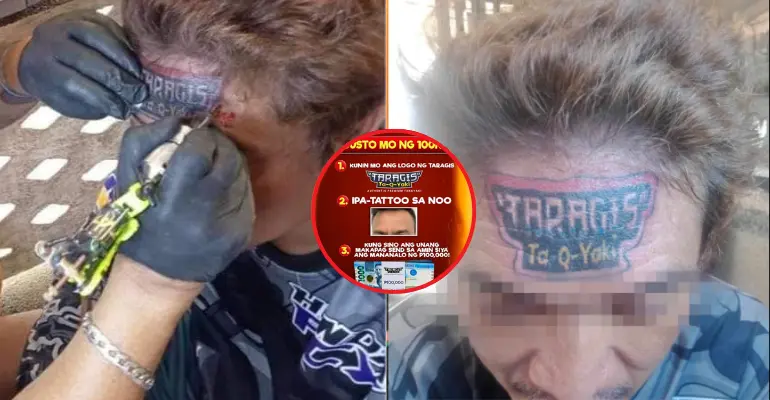A recent social media post by Taragis Takoyaki on April Fool’s has ignited controversy on Facebook, raising questions about online pranks, cultural awareness, and individual responsibility.
Taragis posted an April Fool’s Day challenge offering a hefty ₱100,000 reward to anyone daring enough to tattoo their logo on their body. The post, captioned “KAYA MO BANG GAWIN PARA SA 100k?!” (Can you do the challenge for ₱100k?!), aimed for a lighthearted prank.
However, the consequences proved far from humorous. One participant took the challenge literally and got the Taragis logo tattooed on his forehead.
He then commented on his Facebook post, Taragis, stating he had completed the challenge and was waiting for contact from the store.
Social media erupted in response. While some criticized Taragis for negligence and insensitivity, especially towards audiences unfamiliar with April Fools’ Day traditions, others emphasized individual responsibility in understanding online content.
Comments ranged from demands for accountability to legal threats, highlighting the potential seriousness of online pranks.
The incident also sparked a conversation about cultural differences.
Some users pointed out that April Fools’ Day may not be universally recognized, particularly in the Philippines, where financial difficulties might lead people to take a seemingly outrageous offer seriously.
Amid the backlash, Taragis released a statement through Facebook, which has now been deleted, reiterating the prank’s nature and the importance of reading comprehension.
However, they ultimately absolved themselves of responsibility, stating, “Never trust anything or anyone” and “Taragis Takoyaki is not accountable for the events that occurred.”
This incident is a stark reminder of the potential consequences of online pranks. It highlights the need for content creators to consider cultural contexts and sensitivities before posting potentially misleading information.
Keep Reading: Ivana Alawi left in tears after being pranked by Marian Rivera



Leave a Reply